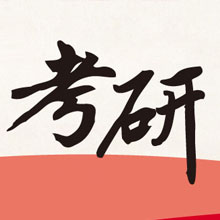新东方托福词汇之“冷僻的身体各部位名称”
2015-10-26 16:25 新东方
hallux
大脚趾
It stems from Latin and began to be commonly used in the mid-19th century. On the opposite side (of the foot), the little toe is called the minimus.
起源于拉丁语,19世纪中叶开始普遍运用。与之相对应的是,小脚趾被称为minimus。
purlicue
“虎口”距(食指与拇指间的空隙)
Although a rare word, purlicue is a term for the space between the forefinger and thumb, originally used in the North of England. It's thought to derive from the Scots term pirlie, meaning ‘curly' or ‘twisted', and is also used as a synonym for curlicue: a term in calligraphy to describe curls in a person's writing.
尽管是个冷僻词,purlicue这一术语用来表示食指与拇指间的空间,最早用于英格兰北部,这个词来源于苏格兰术语pirlie,意为"卷曲的"或"弯曲的";现在用作"花体"的近义词,书法术语,用以形容书写中笔迹的卷曲。
fraenum
系带
A fraenum is a small ligament that restricts movement between body parts. The most obvious example is the fraenum which attaches the tongue to the bottom of the mouth, or the lip to the gum. It comes from the Latin fraenum which meant ‘bridle' – that same idea of restrained movement. It is also spelled frenum, and the more common term is frenulum.
系带是一小小的韧带,限制身体部位的运动。最常见的例子就是连接舌头和口底、唇和牙龈的舌系带。系带一词来源于拉丁语fraenum,意为"缰绳",和限制行动同义,亦拼作"frenum",更为常用的术语是frenulum。
uvula
小舌
The uvula is the fleshy extension that hangs at the back of the mouth above the opening of the throat. This is a body part that we share with some other primates; for instance, baboons have small, underdeveloped uvulae. The uvula helps to close the nasopharynx during swallowing, so that no food can enter the nasal passage. It also causes the initiation of the gag reflex if stimulated, and is also used to articulate a range of sounds in speech, such as the guttural R used in French.
小舌是嘴巴后部、紧贴喉咙口上方悬垂的部分。这一身体部位其他灵长目动物也有,比如狒狒有小型但发育并不完全的小舌。小舌有助吞咽时闭合鼻咽,避免食物进入鼻道。若受到刺激,小舌会引发咽反射;小舌还能用以清晰地发出一系列音,如法语里喉音r。
philtrum
人中
This term refers to the vertical groove between the bottom of the nose and the upper lip. Interestingly, it comes from the Latin word philtrum which initially meant ‘love-potion' or ‘love-charm' and only started being used in English for the body part in the 17th century.
这一术语指的是鼻子底部和上唇间竖直的凹陷部分。有趣的是,这个词来源于拉丁语philtrum ,最初意为“爱情迷药”或“爱情魔咒”,直到17世纪才开始用于英语,表示身体部位。
gowpen
碗状(两手靠拢形成)
This is the hollow that is formed when the two hands are placed together to create a bowl shape. It originates from the Old Norse gaupn.
这个词指的是双手靠拢形成的碗状时双手凹陷的部分,来源于古挪威语gaupn.
gynaecomastia
男性乳房
The technical medical term for what some might refer to in everyday conversation as ‘man boobs' or ‘moobs' – or, rather, the condition that causes the swelling of a man's breast tissue, usually caused by hormone therapy or imbalance.
这一专业术语即有些人日常对话中所说的“男性乳房”,更确切地说,是引发男性胸部组织肿胀、隆起的条件,通常由激素疗法或内分泌失调所致。
canthus
眼角
Stemming from Latin, and from the Greek word kanthos, this word refers to the point in the inner or outer corner of the eye where the upper and lower eyelids meet. It was first used in the mid-17th century.
源自拉丁语和希腊语 kanthos一词,用以指内外眼角上下眼睑交汇处。最初用于17世纪中叶。
gnathion
颔下点
This is the lowest point of the jawbone, so the most outward pointing part of the chin. It comes from the Greek word for ‘jaw' with the –ion suffix added to it, and only came into usage in the late 19th century.
下颌骨的最低点,是下巴最为向外突出的点,来源于希腊语jaw一词,加上-ion后缀,直到19世纪末期人们才开始使用这个词。
glabella
印堂
The glabella is the smooth part of the forehead, between and directly above the eyebrows. The term comes from the Latin glaber, meaning ‘without hair, smooth, bald'. It is used medically to test for dehydration, as the skin becomes wrinkled and shrivelled when dehydrated.
额头眉间稍高处平整光滑的部分。这个术语来源于拉丁语glaber, 意为“没有毛发、平整、光秃”。医学上用以测试是否脱水,因为脱水时皮肤会收缩、形成褶皱。
编辑:张雨
联系我们
版权及免责声明
① 凡本网注明“稿件来源:新东方”的所有文字、图片和音视频稿件,版权均属新东方教育科技集团(含本网和新东方网)所有,任何媒体、网站或个人未经本网协议授权不得转载、链接、转贴或以其他任何方式复制、发表。已经本网协议授权的媒体、网站,在下载使用时必须注明“稿件来源:新东方”,违者本网将依法追究法律责任。
② 本网未注明“稿件来源:新东方”的文/图等稿件均为转载稿,本网转载仅基于传递更多信息之目的,并不意味着赞同转载稿的观点或证实其内容的真实性。如其他媒体、网站或个人从本网下载使用,必须保留本网注明的“稿件来源”,并自负版权等法律责任。如擅自篡改为“稿件来源:新东方”,本网将依法追究法律责任。
③ 如本网转载稿涉及版权等问题,请作者见稿后在两周内速来电与新东方网联系,电话:400-0551-888。



